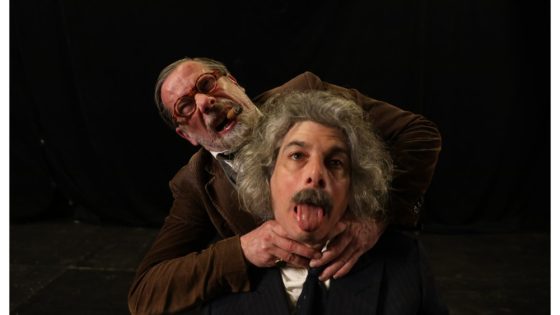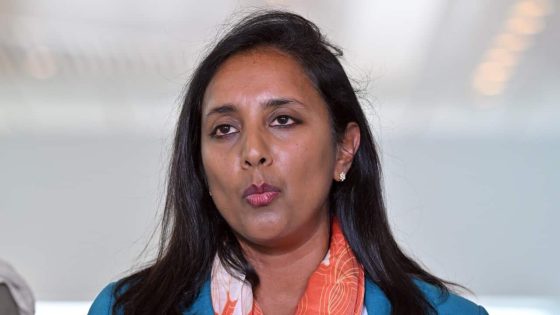Variety has been given access to the first clip from “Why War,” written and directed by Israeli filmmaker Amos Gitai. The film, starring Irène Jacob, Mathieu Amalric, Micha Lescot and Jérôme Kircher, has its world premiere on Aug. 31 at the Venice Film Festival in an out of competition berth.
The film is inspired by correspondence between Albert Einstein and Sigmund Freud about how humanity could avoid war. It is also based on a work by Virginia Woolf, “Three Guineas,” in which she investigates the relationships of domination in sexuality, to which an essay by Susan Sontag, “Regarding the Pain of Others,” responds, and talks about the iconography of war.
In a statement, Gitai says: “When the attack on October 7th occurred, I wanted to read and reread some texts to seek help and understand the roots of this human desire to engage in war and in killing. And in this search this exchange of letters was a revelation.”
He adds: “This correspondence between Einstein and Freud continues my research on how armed conflicts can be avoided, how it is possible to find peaceful solutions to reconcile distant positions. Around this extraordinary dialogue between two brilliant intellectuals I built a poetic film in which the war is never seen.”
He concludes: “I have lived alongside ethnic, religious and political divisions, always trying not to get overwhelmed. And for me cinema has a civic mission. That’s what I try to bring to my cinematography. We live in a world in which dialogue has become increasingly complicated and rare, and this favors extreme positions as we also see in many parts of the world. So, it’s not a film that wants to give an answer, but to make us all question ourselves.
“I would like to build bridges instead of burning them. We directors, but all artists in general I believe, must not resign ourselves to divisions. On the eve of October 7, I knew that we were in an explosive situation in Israel but this awareness did not cushion the trauma for someone like me who has long been trying to get Israelis and Palestinians to talk through art. It’s what I’ve been doing for years in my films and theatrical works. In antiquity the traditional role of artists was to be healers. To heal souls. I would like to embrace the idea of the filmmaker or the artist as a healer.”
The film is produced by Agav Films and Elefant Films, in association with Gad Fiction, United King Films, Indiana Production and Live and Survive.
Gitai was in competition in Venice with “Berlin-Jerusalem” (1989), “Eden” (2001), “Alila” (2003), “Promised Land” (2004), “Ana Arabia” (2013), “Le dernier jour d’Yitzhak Rabin” (2015) and “Laila in Haifa” (2020). He was in competition in Cannes with “Kadosh” (1999), “Kippur” (2000), “Kedma” (2002) and “Free Zone” (2005).
Source Agencies


